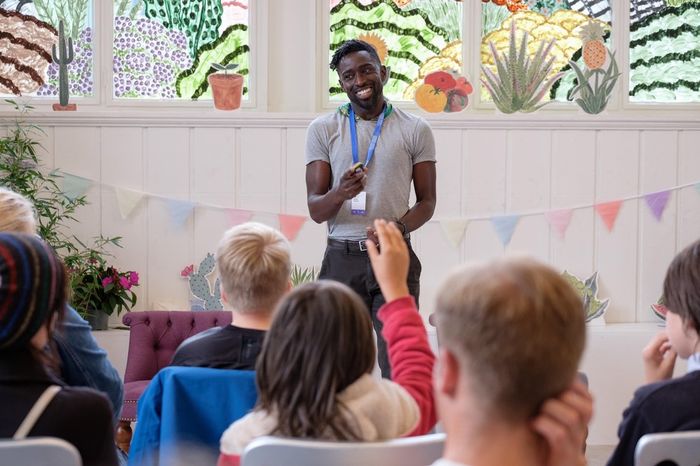‘The Tudors were the first to champion the idea of Empire’: Suzannah Lipscomb on why the Tudors matter
Suzannah Lipscomb on her scholarly influences, her next project and advice for History students

Having spent most of my degree studying modern history, it was a breath of fresh air to chat with one of the most distinguished scholars of the Tudor period.
Lipscomb, instantly recognisable from her documentaries, had planned to work in international development, having immersed herself in non-European histories and worked for various NGOs as an undergraduate. It is because of such interests that she learned Hindi. She fondly recalls finding herself in an “extraordinarily fascinating” country, among people who were “generally very lovely.”
The defining moment, then, came in a tutorial in Lipscomb’s final year at Oxford. Writing an undergraduate thesis on comparative history, Lipscomb compared religious violence in 19th and 20th-century India with 16th-century France. “I came away from that tutorial with [tutor] Robin Briggs thinking if I could study with him, I might just do a doctorate.” This decision ultimately led the now household name to apply for an MSt in Historical Research and later a DPhil in History at Oxford.
“The Tudors are the first to champion the idea of Empire”
Why, modernists might ask, does Lipscomb believe the Tudors are so special? The Tudors, she asserts, “have appealed to people for years because of the cast of characters within the period.” She notes that it marked the first time we accurately know what contemporaries looked like; “The visual element is hugely significant.” The tumultuousness of the era, too, heightens its appeal. The “beginnings of the modern state”, the birth of the Royal Navy under Henry VIII, the planting of the seeds of Empire and founding of the British East India Company, she argues, all render the period particularly special. This really was the extent of my early modern knowledge.
With this in mind, Lipscomb and I chat about the dialogue between the Tudor era and the modern day. She connects the Tudor colonisation of Ireland (and the subsequent imposition of Protestantism on a Catholic people) to narratives about the Troubles in Northern Ireland. Even for Brexit, the Oxford graduate argues, understanding the Tudors is key: “Much of our thinking about what it means to be English and British comes from John Foxe”, a Tudor contemporary who “conjured up ideas of Englishness as self-consciously Protestant.”
“We can’t keep telling the same stories of people in power”
It is not just the Tudor era that fascinates Lipscomb. When discussing her stint in the ‘Dictionary Corner’ on Countdown, she remarks that it was “a lot of fun” for her to “tell some interesting historical stories.” I see this sentiment mirrored when she shares her thoughts on her 2021 book What is History, Now?, a work she edited with Helen Carr, great-granddaughter of the fabled Cantab historian E.H. Carr. When reflecting on her chapter, ‘How can we recover the lost lives of women?’, Lipscomb discovered that there are “very few autobiographical sources for certain groups of women, like those who were enslaved.” Most of the records we have to access the lives of these women, she observes, “were written by influential white men.” That much is hardly surprising.
Her solution is to reorientate the historical narrative. “One of the ways I got around this was by asking different questions,” Lipscomb says. “History as a discipline likes to emphasise corroborative accounts and qualitative data”, a method that often proves insufficient in the reconstruction of women’s histories. Her message is clear: “We can’t keep telling the same stories of people in power.”
Lipscomb informs me that, in addition to her ongoing podcast Not Just The Tudors, she has just wrapped filming for a show with the working title Royal Secrets and Scandals, airing February on More4. Lipscomb also reminds me of her current project, a book titled The Six which (you guessed it!) chronicles Henry VIII’s six wives. “I’m a bit of a lunatic to have taken this [project] on”, Lipscomb chuckles, “because writing six biographies for one book is a huge amount of work.” The “collective histories of these women are all a quarter of a century old” and most are “filled with cringey things reflecting contemporary gender norms.” Drawing from non-anglocentric sources and more recent scholarship, Lipscomb hopes to bring a new perspective to this high political history.
Lastly, I press Lipscomb on the importance of reading and writing history, and her advice for our generation. “If you don’t become aware of what the world was like before you were born, you remain forever a child.” Lipscomb then laughs that she’s “sure she’s paraphrasing Cicero” when she says that. Ultimately, one “cannot hope to do good unless you understand how we got here”, which is why she encourages all university students to “read lots, educate yourself [and] keep your eyes open.”
The Six is scheduled for release October 2024.
 News / Clare Hall spent over £500k opposing busway 24 December 2025
News / Clare Hall spent over £500k opposing busway 24 December 2025 Comment / The ‘class’ of Cambridge24 December 2025
Comment / The ‘class’ of Cambridge24 December 2025 News / Caius mourns its tree-mendous loss23 December 2025
News / Caius mourns its tree-mendous loss23 December 2025 News / Girton JCR publishes open letter expressing solidarity with Palestine25 December 2025
News / Girton JCR publishes open letter expressing solidarity with Palestine25 December 2025 Comment / Yes, I’m brown – but I have more important things to say22 December 2025
Comment / Yes, I’m brown – but I have more important things to say22 December 2025










